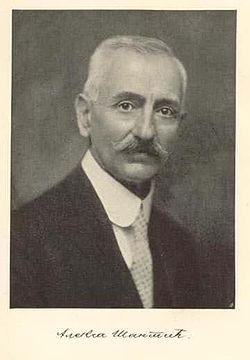- Sinoć kad se vraćah iz topla hamama,
- prođoh pokraj bašče staroga imama.
- Kad tamo u bašči, u hladu jasmina
- s ibrikom u ruci stajaše Emina.
- Ja kakva je pusta! Tako mi imana,
- stid je ne bi bilo da je kod sultana.
- Pa još kada šeće i plećima kreće,
- ni hodžin mi zapis više pomoć' neće!
- Ja joj nazvah selam. Al' moga mi dina,
- ne šće ni da čuje lijepa Emina,
- već u srebrn ibrik zahvatila vode,
- pa niz bašču đule zaljevati ode.
- S grana vjetar puhnu, pa niz pleći puste
- rasplete joj njene pletenice guste.
- Zamirisa kosa, k'o zumbuli plavi,
- a meni se krenu bururet u glavi!
- Malo ne posrnuh, mojega mi dina,
- al' meni ne dođe lijepa Emina.
- Samo me je jednom pogledala mrko,
- niti haje, alčak, što za njome crko'!
| - Last night, returning from the warm hamam
- I passed by the garden of the old Imam
- And lo, in the garden, in the shade of a jasmine,
- There with a pitcher in her hand stood Emina.
- What beauty! By iman I could swear,
- She would not be ashamed if she were at the sultan’s!
- And the way she walks and her shoulders move...
- -- Not even an Imam’s amulet could help me!
- I offered her salaam, but by my dīn,
- Beautiful Emina would not even hear it.
- Instead, scooping water in her silver pitcher,
- Around the garden she went to water the roses.
- A wind blew from the branches down her lovely shoulders
- Unraveling those thick braids of hers.
- Her hair gave off a scent of blue hyacinths,
- Making me giddy and confused!
- I nearly stumbled, I swear by my faith,
- But beautiful Emina did not come to me.
- She only gave me a frowning look,
- Not caring, the naughty one, that I am crazy for her!
|

